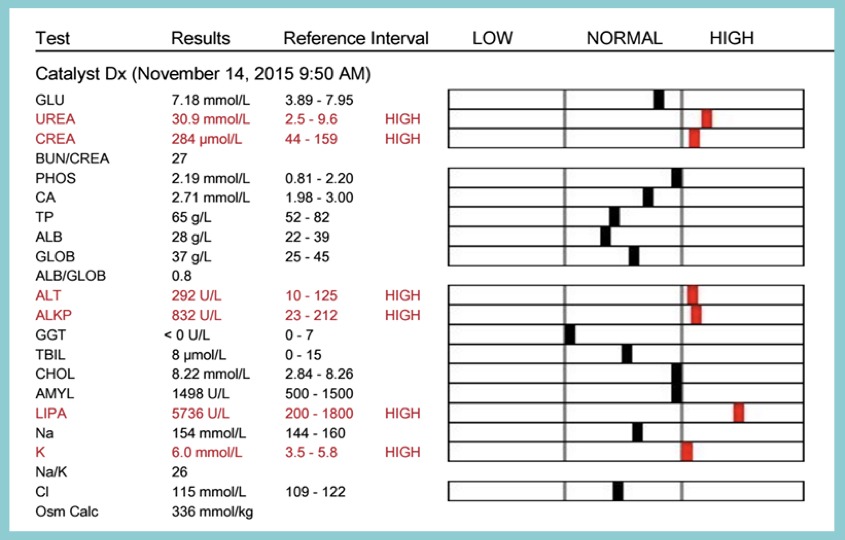Understanding the concept of pet health is essential for every pet owner. Pet health refers to the overall wellbeing of your pet, encompassing physical, mental, and behavioural aspects. A healthy pet is not merely free from disease but also exhibits a good disposition, a healthy appetite, and activity levels suitable for their age and breed.
The Importance of Monitoring Your Pet’s Health
Regular monitoring of your pet’s health is crucial to ensure they live a long, happy life. This involves regular veterinary check-ups, vaccinations, parasite control, balanced nutrition, and physical activity. Observing changes in your pet’s behaviour, eating habits, or physical appearance can assist in detecting any health issues early.
Why Regular Blood Work is Important for Your Pet’s Health

Regular blood work is an invaluable tool in maintaining your pet’s health. It can identify potential health issues before they become serious and provide a comprehensive overview of your pet’s overall health status.
Understanding the Basics of Blood Work for Pets
Blood work, a critical aspect of veterinary medicine, is a comprehensive examination of the health status of pets. It’s a type of diagnostic test that analyses the cellular components of blood. It can reveal a wealth of information about a pet’s health, from detecting diseases to evaluating organ function.
Varieties of Blood Tests for Pets
- Complete Blood Count (CBC): This test evaluates the number and types of cells in the blood.
- Chemistry Panel: This helps examine organ function, electrolyte status, and more.
- Thyroid Hormone Testing: This is often used to diagnose hyperthyroidism.
- Heartworm Test: This checks for an infection by Dirofilaria immitis, a heartworm.
Insights Gleaned from Blood Tests
Blood tests can reveal a great deal about a pet’s overall health. They can detect indications of inflammation, infection, and disease. They can also provide insights into a pet’s organ function and are instrumental in diagnosing conditions such as anemia, diabetes, and liver disease.

The Critical Role of Regular Blood Work for Pet Health
As a pet owner, one cannot overemphasise the value of carrying out regular blood work for your pets. This practice plays a key role in maintaining their overall health and is a critical component of preventive care. Blood work helps detect potential health issues at an early stage, even before symptoms appear, hence enabling proactive intervention and treatment.
How Blood Work Can Detect Early Disease Signs
Blood work involves a comprehensive examination of your pet’s blood sample. It can provide essential data about your pet’s organs, their functioning, and overall health. The early detection of diseases like diabetes, kidney disease, and liver disorders is made possible through these tests. This is because changes in the blood often precede physical signs of illness, making blood work a powerful tool for early disease detection.
Blood Work in Preventive Care
Preventive care is a proactive approach to pet health. Regular blood work is a cornerstone of this approach, providing valuable insights into their health status and allowing for early diagnosis and treatment of potential health issues. By integrating regular blood tests into your pet’s routine health checks, you can ensure they live a healthier and longer life.
Blood Work: A Paramount Diagnostic Tool for Pet Health
Regarded globally as an essential component in veterinary diagnosis, blood work proves instrumental in detecting various health anomalies in pets. It provides a detailed internal snapshot of your pet’s health, enabling early detection and treatment of possible diseases.
Decoding Disease Diagnosis Through Blood Work
Blood tests are often the first step in diagnosing health issues in pets. For instance, a Complete Blood Count (CBC) can identify conditions like anaemia or infection, while a blood chemistry panel can reveal issues with your pet’s liver, kidneys, or pancreas.
Case Study: Canine Heartworm Disease
Consider the case of Canine Heartworm Disease, a dangerous yet preventable condition. By analysing blood samples, veterinarians can detect the presence of heartworm proteins, thus facilitating early intervention and treatment.
Why is Regular Blood Work Essential?
Regular blood work is crucial for your pet’s health, as it aids in detecting diseases in their early stages, when they are most treatable. Furthermore, it also helps monitor the efficacy of ongoing treatments, ensuring your pet’s optimal health.
Impact of Age and Breed on the Necessity of Blood Work
It’s crucial to understand that the need for blood work in pets can be significantly influenced by their age and breed. As pets mature, the likelihood of developing certain health conditions increases. Regular blood work becomes vital in early detection and prevention of these potential issues.
Breed-Specific Blood Work Requirements
Specific breeds may require more frequent blood work due to their predisposition to certain health conditions. For instance, brachycephalic breeds like Bulldogs or Pugs often require additional monitoring due to their susceptibility to respiratory issues. Similarly, larger breeds such as Great Danes may need more frequent blood tests due to heart conditions commonly found in these breeds.
Understanding Your Pet’s Blood Work Results
Deciphering your pet’s blood work results might initially seem daunting, but with a basic understanding, it becomes manageable. Blood tests are an integral part of your pet’s health care routine, providing crucial insights into their overall health status.
The complete blood count (CBC) is a common blood test conducted for pets. This test measures the number of red and white blood cells, platelets, and haemoglobin levels in the blood. Abnormalities in these levels can indicate various conditions such as anaemia, infections, or blood disorders.
Another commonly measured parameter is the blood chemistry panel, including liver and kidney function tests, blood glucose, and electrolyte levels. Changes in these levels can signify liver disease, kidney disease, diabetes, or electrolyte imbalances.
Remember, understanding these results provides a snapshot of your pet’s health, helping you make informed decisions about their care. However, diagnosis and treatment should always be left to professional veterinarians.

Common Findings and What They Mean for Your Pet’s Health
Common findings in your pet’s blood work might indicate underlying health concerns. For instance, a high white blood cell count could suggest an infection or inflammation, while low red blood cell count may indicate anaemia. Similarly, increased liver enzymes can point towards liver disease, and elevated blood glucose levels may suggest diabetes.
Understanding these findings helps you stay proactive about your pet’s health. Regular blood work is crucial for early detection of potential health issues, allowing for timely intervention.
Frequency of Blood Work for Pets
Pets, like humans, benefit from regular blood tests. These tests are crucial in maintaining your pet’s health as they can detect underlying issues before they become serious. However, the frequency of these tests should be tailored to your pet’s specific needs.
Generally, healthy pets should have blood work done annually. This frequency can increase to twice a year for older pets, or pets with existing health conditions. We recommend more frequent testing for senior pets, as they are more prone to diseases.
It’s important to note that breed can also influence the frequency of blood work. Certain breeds may be predisposed to specific health issues which can be monitored through regular testing. Thus, your vet may recommend more frequent tests for these pets.
Ultimately, the frequency of blood work for your pet should be determined in consultation with your vet, based on your pet’s age, breed and overall health. Regular blood work is a proactive step in ensuring your pet’s wellbeing.
Why Regular Blood Work is Important
Regular blood work is crucial for early detection of potential health issues. This allows for timely intervention and treatment, which can significantly improve your pet’s prognosis. We like to emphasise the importance of regular veterinary check-ups, which should include blood tests, for maintaining your pet’s health.
Conclusion: Proactive Pet Health
In wrapping up, the significance of regular blood work for pet health cannot be overstressed. Regular blood tests are not just a critical part of diagnosing illnesses, but also an invaluable tool for monitoring your pet’s overall health status.
We implore pet owners to adopt a proactive approach to their pet’s health, which includes regular blood tests. These tests can spot potential health issues early, making treatment more effective and less costly.

Regular blood work, as a part of whole pet care, substantially contributes to a long, healthy life for your beloved companions. By taking initiative in your pet’s health, you are not only ensuring their well-being but also enriching your bond with them.
Being proactive about pet health is not just about curing diseases, it’s about prevention. It’s about making sure your pets get the best possible care, and ultimately, the best possible life.


